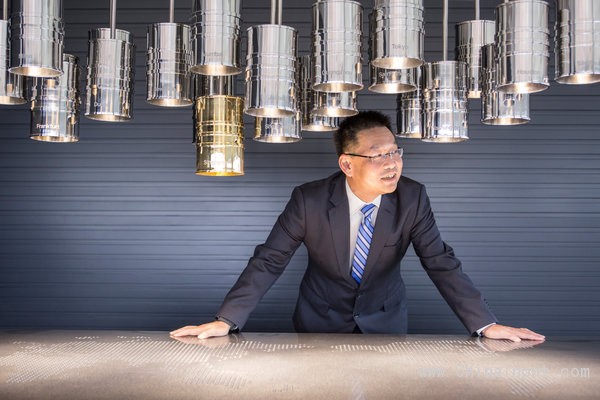 新加坡——通用汽车公司(General Motors)本月将国际部的总部从上海迁到新加坡,此前,农业企业巨头阿彻丹尼尔斯米德兰公司(Archer Daniels Midland,简称ADM)也将亚太区总部迁至新加坡。IBM等跨国公司则将财务管理等一些部门的员工从中国转移至新加坡。
新加坡——通用汽车公司(General Motors)本月将国际部的总部从上海迁到新加坡,此前,农业企业巨头阿彻丹尼尔斯米德兰公司(Archer Daniels Midland,简称ADM)也将亚太区总部迁至新加坡。IBM等跨国公司则将财务管理等一些部门的员工从中国转移至新加坡。ADM亚太区总裁罗逸铭(Ismael Roig)说,“我将会花很长时间来回往返,五个小时的航程会成为我每个月的巴士通勤时间。”
这些举措折射出中国广泛的发展变化,中国现在是世界最大的汽车、平板电视及其他数十种商品的消费市场。中国经济已经变得如此庞大,以至于各大公司越来越多地以对待欧洲的方式对待中国,中国地区的报告可以直接发给公司总部,不再与发展中国家的报告混在一起。
通用汽车国际部负责人史蒂芬·雅各比(Stefan Jacoby)表示,“我们在中国市场占据重要地位,而且我们希望如此。”他领导的国际部于8月5日正式迁至新加坡,不再负责中国地区的运营事宜,而是负责管理通用在非洲、中东、南亚、澳大利亚及韩国的子公司。
一定程度上,在中国经商遭遇的不如意之处促使他们实施撤离在华高管的计划——严重的空气污染,对本土企业有利的法规,知识产权保护举措的孱弱。而且相关部门开展了大规模行动,突袭了汽车、制药及技术类跨国公司在中国的办公区,突显出不断加剧的经济民族主义浪潮。警方拷贝了大量电脑硬盘资料,并在不允许员工咨询律师的情况下对他们进行讯问。
更重要的是,很多跨国公司开始重新关注东南亚地区,在亚洲金融危机结束17年后,该地区出现了复兴迹象。它们发现,很难在上海或北京加强这些地区的业务。例如,每天从中国大城市飞往印度尼西亚雅加达的航班不超过一个。而且中国坚称对南海几乎所有海域拥有主权,导致中国与东南亚的外交、贸易关系紧张。
新加坡投资促进机构——经济发展局(Economic Development Board)局长杨吉全(Keat Chuan Yeoh)表示,这些公司将总部迁至新加坡,“与中国之外的亚太国家的发展机遇有关。”
前德国副总理、瑞士达沃斯世界经济论坛(World Economic Forum)常务董事菲利普·勒斯勒尔(Philipp Rösler)表示,令人吃惊的是,在过去几个月中,很多参与论坛的公司称它们正在考虑将当地或区域总部迁出中国大陆。
但迄今为止,还没有出现大规模的撤离。新加坡的两大商业房地产中介机构——总部位于纽约的高纬环球(Cushman & Wakefield)和总部位于芝加哥的仲量联行(Jones Lang LaSalle)——都表示,它们没有看到跨国公司从中国大陆或香港大举迁至新加坡的迹象。
仲量联行新加坡地区负责人克里斯·阿奇博尔德(Chris Archibold)说,“撤离中国的超长名单并不存在,我们没有看到这种情况。”
一名不愿透露姓名的西方企业首席执行官表示,十年前,很多美国企业冲向上海,将亚洲总部设在那里,它们现在感到后悔,但又担心撤离举措会激怒中国政府。
历史的殷鉴并不遥远。在100多年的历史里,怡和洋行(Jardine Matheson)曾是香港地区主要的英国公司,它在20世纪80年代将公司注册地迁至百慕大,并于1994年,也就是香港回归中国之前,从香港证券交易所(Hong Kong Stock Exchange)退市。这些决定导致北京方面做出报复,在十多年的时间里,阻碍该总司在中国大陆进行大规模投资。
目前,与留在中国的业务相比,转移到新加坡的业务规模很小,甚至可以说是微不足道的。
罗逸铭表示,ADM在上海建立了一个大型团队,该团队负责与收购中国农企厂家相关的谈判事宜,尽职调查,及审计工作。因此,对于该公司来说,在亚洲的当务之急是在不断成长的印度尼西亚及越南市场发展同样的能力。
从新加坡起飞,两个小时即可抵达雅加达或越南胡志明市。新加坡也推出了利于大宗商品交易的税法,并与其他国家签订了协议,因此在与其他地方的公司发生交易纠纷时,问题相对容易解决。
但罗逸铭的下属大多数都会留在上海。通用汽车也只有40名经理和主管从上海搬到新加坡,它的整个国际运营总部在市中心占据了一座写字楼的一层楼。
公司发现,劝说管理人才搬到新加坡,要比劝说他们搬到上海容易一些,因为新加坡的空气相当洁净。SOHO中国是知名的京沪高端写字楼开发商,其首席执行官张欣说,她儿子参加了一个以欧洲青少年为主的北京足球俱乐部,今年夏天,五分之三的成员和教练都搬离了中国,令她深感震惊,她将此事归结于空气污染。
本周二,中国欧盟商会(European unio Chamber of Commerce in China) 在北京发布了一份内容广泛的年度报告。文中称,有八个成员公司表示,劝说优秀员工搬到中国的难度增大了,一个主要原因就是空气污染。
在其他地方,也存在缺少英语学校的问题。新加坡已经在阻止当地家庭把念小学和初中的子女送到那里的国际学校,以免挤占位置。在中国大陆,已有很多国际学校人满为患,而在香港,这个问题则是由其严重。
新加坡美国学校(ingapore American School)是一所极具声望的国际学校,校长奇普•金博尔(Chip Kimball)说,越来越多的外籍人士正在搬往新加坡,但在他的学校,报名人数增幅很小,因为过去的五年中,在政府的安排下,新加坡已经开办了一系列其他国际学校。
相比之下,“香港现在的瓶颈是子女上学问题,”DHR国际公司(DHR International)在香港的金融服务业务部负责人董梅(音)说。DHR总部设在芝加哥,是一家高管猎头公司。
虽然只有几个总部搬走了,搬走的工厂甚至更少,但对于进一步在中国增加研发中心,跨国公司确实变得更加谨慎了。目前,中国已经拥有大量国际研发中心。
宝洁(Procter& Gamble)和百特制药(Baxter Pharmaceuticals)等公司虽然在中国仍保留着大量业务,但已经在新加坡设立或增加了研发中心和高科技工厂。
新加坡国立大学李光耀公共政策学院院长马凯硕(Kishore Mahbubani)表示,百度和华为等中国科技公司正在发展,这意味着中国有一支正在壮大的力量,将支持知识产权保护最终获得改善。
另外一家西方跨国公司的亚洲部首席执行官说,现在很多的公司“都已认定,如果在中国设立研发中心,所有的技术秘密都会被复制,所有的专利都会被非法利用。”这位首席执行官不愿具名,因为公开批评中国会面临法律风险。
(更多全球资讯请关注中国进出口网)
SINGAPORE — General Motors moved the headquarters of its international division here from Shanghai last month. Archer Daniels Midland, the agribusiness giant, is gradually doing the same with its Asia and Pacific operations. Other multinationals, like IBM, have shifted staff members here from China for a few functions, like treasury operations.
“I’m going to spend a lot of time going back and forth — the five-hour flight is going to be my monthly bus trip,” said Ismael Roig, the president of Archer Daniels Midland’s Asia and Pacific operations.
The moves reflect the broader evolution of China, now the world’s largest market for cars, flat-panel televisions and scores of other products. The Chinese economy has become so large and affluent that companies increasingly treat it like Europe, with reports going directly to head offices in home countries and no longer lumped in with those from developing countries.
“We are big in China, and we want to be,” said Stefan Jacoby, the president of General Motors International. His division, which officially moved here on Aug. 5, no longer includes the company’s China operations, but encompasses G.M. subsidiaries in Africa, the Middle East, Southeast Asia, Australia and South Korea.
The many frustrations of doing business in China have made some difference in the plans to move executives here — choking air pollution, countless regulations that favor local competitors and weak protection for intellectual property. A rising wave of economic nationalism has also manifested itself in large-scale raids on the Chinese offices of multinationals in the automotive, pharmaceutical and technology sectors. Police officials are copying large numbers of computer hard drives and interrogating employees without allowing access to legal advice.
More important, many multinationals are starting to pay renewed attention to Southeast Asia, which is showing signs of revival 17 years after the Asian financial crisis. They have found it hard to do that from Shanghai or Beijing. Each major city has no more than one flight a day to Jakarta, Indonesia, for example. And China’s diplomatic and trade ties to Southeast Asia have been strained by its increasingly assertive claims to control over practically all of the South China Sea.
The reasons for companies to shift headquarters to Singapore, “relate to the growth opportunities in Asia Pacific beyond just China,” said Keat Chuan Yeoh, the managing director of the Economic Development Board, Singapore’s investment promotion agency.
Philipp Rösler, a former vice chancellor of Germany who is now a managing director of the World Economic Forum in Davos, Switzerland, said the forum had been surprised by the number of its member companies that had said in the last several months that they were considering moving their local or regional headquarters out of mainland China.
But so far, it has not translated into a mass exodus. Two of the largest corporate leasing brokers in Singapore — the New York-based Cushman & Wakefield and the Chicago-based Jones Lang LaSalle — each say they see no sign of large-scale moves by multinationals from mainland China or Hong Kong to Singapore.
“There isn’t a huge long list of people moving out of China; that isn’t what we see at all,” said Chris Archibold, the head of Singapore leasing for Jones Lang LaSalle.
Many American companies that rushed to open Asia headquarters in Shanghai a decade ago now regret it but are leery of antagonizing the Chinese government by moving out, said the chief executive of a Western company who spoke on the condition of anonymity.
History looms large. Jardine Matheson, Hong Kong’s leading British company for more than a century, moved its incorporation to Bermuda in the 1980s and delisted from the Hong Kong Stock Exchange in 1994, before the return of Hong Kong to Chinese sovereignty. Those decisions prompted retaliation by Beijing, which hindered the company’s ability to make large investments in mainland China for more than a decade.
For now, the operations being moved here remain tiny, even microscopic, compared with those remaining in China.
Archer Daniels Midland has built a large team in Shanghai that can negotiate acquisitions of agribusiness factories in China, do due diligence and conduct audits, Mr. Roig said. So the top priority now for the company in Asia is to develop the same capability in the growing Indonesian and Vietnamese markets.
Singapore is a two-hour flight from Jakarta and from Ho Chi Minh City, Vietnam. Singapore also has tax laws that favor commodities trading operations and agreements with other countries that make it relatively easy to resolve trading disputes with companies elsewher.
But most of Mr. Roig’s subordinates remain in Shanghai. Similarly, only 40 G.M. managers and executives have moved from Shanghai to Singapore, and the entire international operations headquarters occupies a single floor of a downtown office building.
Companies are finding it easier to persuade talented managers to move to Singapore, with its fairly clean air, than to Shanghai. Zhang Xin, the chief executive of SOHO China, the leading developer of top-end office buildings in Beijing and Shanghai, said she was stunned when three-fifths of the mostly European teenagers and the coach at her son’s soccer club in Beijing all moved out of China this summer, a shift that she attributed to air pollution.
The European unio Chamber of Commerce in China said in its wide-ranging annual position paper, released in Beijing on Tuesday, that eight of its member companies had reported rising difficulties in persuading talented staff to move to China, particularly because of air pollution.
Shortages of spaces at English-language schools have also been an issue elsewher. Singapore has prevented local families from enrolling their children in the elementary school and junior high grades at the city’s international schools, avoiding the overcrowding that has afflicted many such schools in mainland China and, particularly, Hong Kong.
Chip Kimball, the superintendent of the highly regarded Singapore American School, said that more expatriates were moving to Singapore. But he noted that his school had experienced only a slight increase in demand because the government had arranged for a series of other international schools to open in the last five years.
By contrast, “the bottleneck in Hong Kong right now is schooling,” said May Tung, the head of the Hong Kong financial services practice of DHR International, a Chicago-based executive recruitment firm.
While few headquarters are moving, and even fewer factories, multinationals do appear more cautious in adding further to their already numerous research centers in China.
Companies like Procter & Gamble and Baxter Pharmaceuticals have been opening or expanding research and development centers and high-tech factories here in Singapore, although they also retain large operations in China.
Kishore Mahbubani, the dean of the Lee Kuan Yew School of Public Policy at the National University of Singapore, said the growth of Chinese technology companies like Baidu and Huawei meant that a constituency was growing in China for eventual improvements in intellectual property protection.
The chief executive for Asia at another Western multinational, who insisted on anonymity because of the legal dangers in criticizing China openly, said that at many companies now, “They’re just convinced if they open that R.&D. center in China, every technical secret they’ve got will be copied, every patent will be exploited.”
(更多全球资讯请关注中国进出口网)











